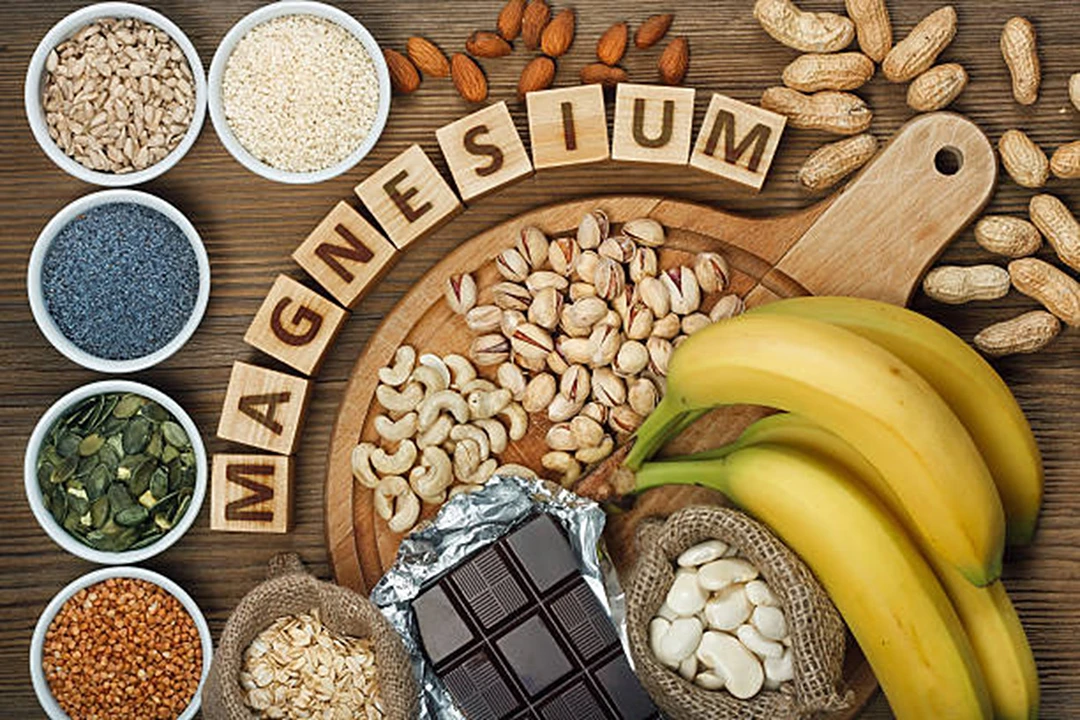 Ever thought about the secret to glowing skin? The answer might be right under your nose. Magnesium, a vital mineral, plays a crucial role in your skin’s health and overall nutrition. Many people overlook this essential nutrient, focusing instead on trendy skincare products.
Ever thought about the secret to glowing skin? The answer might be right under your nose. Magnesium, a vital mineral, plays a crucial role in your skin’s health and overall nutrition. Many people overlook this essential nutrient, focusing instead on trendy skincare products.
But did you know that magnesium can help reduce acne, improve hydration, and even slow down aging? This blog post will break down how magnesium works its magic and why you should consider incorporating it into your skincare routine.
Read on to discover the benefits of magnesium for your skin and see how this mineral can transform your skincare game.
Understanding the Mineral
Magnesium (see more here) is a vital mineral that plays a crucial role in maintaining healthy skin. Let’s delve into why magnesium is essential for skin health, how to recognize signs of magnesium deficiency in the skin, and the various forms of magnesium found in skincare products.
The Importance
Magnesium is known for its anti-inflammatory properties, helping to soothe and calm irritated skin. It also aids in maintaining the skin barrier function, which is essential for keeping moisture in and irritants out. Moreover, it helps regulate collagen synthesis, promoting skin elasticity and firmness. Overall, magnesium contributes to achieving a clear, radiant complexion.
A lack of magnesium in the body can manifest through the skin in various ways. Common signs of magnesium deficiency include dryness, dullness, acne breakouts, and even sensitivity. Furthermore, inadequate magnesium levels may lead to an impaired skin barrier, making the skin more susceptible to environmental aggressors and premature aging. Recognizing these signs can prompt the need for magnesium supplementation in your skincare routine.
Usage in Skincare
Skincare products often contain different forms of magnesium, each offering unique benefits for the skin. Magnesium ascorbyl phosphate, for instance, combines the antioxidant properties of vitamin C with magnesium to brighten the skin and even out skin tone. Magnesium chloride is another common form used for its hydrating and anti-inflammatory properties, perfect for calming irritated skin. Whether in serums, creams, or masks, incorporating magnesium-based products can enhance your skincare regimen and promote overall skin health.
What Are the Benefits?
 Learn more about the benefits at the website listed here: https://www.healthline.com/nutrition/magnesium-benefits
Learn more about the benefits at the website listed here: https://www.healthline.com/nutrition/magnesium-benefits
Magnesium plays a crucial role in maintaining healthy skin, benefiting your skincare routine in various ways. These include:
Promoting Healthy Skin Barrier Function
One of the key benefits of magnesium in skincare is its ability to promote a healthy skin barrier function. This essential mineral helps in retaining moisture in the skin, protecting it from environmental stressors and pollutants. By strengthening the skin barrier, magnesium ensures that your skin stays hydrated, supple, and resilient against external aggressors.
Reducing Inflammation and Acne
Magnesium possesses anti-inflammatory properties that can help in reducing inflammation and calming irritated skin. By soothing redness and swelling, magnesium aids in combating acne and promoting a clearer complexion. Its gentle nature makes it suitable for sensitive skin types as well, offering relief from skin conditions like eczema and rosacea.
Anti-Aging Properties of Magnesium
In addition to its hydrating and calming benefits, it also exhibits anti-aging properties. It helps in neutralizing free radicals, which contribute to premature aging and fine lines. By incorporating magnesium into your skincare regimen, you can potentially enhance skin elasticity, diminish the appearance of wrinkles, and maintain a youthful glow over time.
Incorporating magnesium into your skincare routine can bring a multitude of benefits, from enhancing skin barrier function to reducing inflammation and combating signs of aging. Add this powerhouse mineral to your daily regimen and unlock the potential of radiant, healthy skin.
Incorporating Magnesium into Your Skincare Routine
Incorporating magnesium into your skincare routine can offer numerous benefits for your skin health. From choosing the right magnesium skincare products to applying them effectively, here are some valuable tips to help you make the most of this essential mineral for your skin.
Choosing the Right Magnesium Skincare Products
When selecting magnesium skincare products, opt for those with high-quality, natural ingredients to ensure maximum effectiveness. Look for products that specifically mention magnesium as a key ingredient, such as magnesium oil, cream, or lotion. Ensure that the product is free from harsh chemicals and fragrances that could irritate your skin. Consider your skin type and any specific skin concerns you have to choose the most suitable magnesium skincare product for your needs.
Best Practices for Applying Magnesium Topically
To reap the full benefits of magnesium for your skin, it’s essential to apply it correctly. Start with clean, dry skin to enhance absorption. Consider doing a patch test before applying magnesium products over a larger area to check for any adverse reactions. Gently massage the magnesium product onto your skin in circular motions to promote better absorption. Allow the product to fully absorb before applying any other skincare products to maximize its effects.
Incorporating magnesium into your skincare routine can help nourish your skin, promote relaxation, and support overall skin health. By choosing the right magnesium skincare products and following best practices for application, you can harness the power of this essential mineral for glowing, healthy skin.
DIY Magnesium Skincare Recipes
 Incorporating magnesium into your skincare routine can offer a range of benefits for your skin’s health and appearance. Creating your own DIY magnesium skincare products allows you to customize the ingredients to suit your needs while enjoying the nourishing properties of magnesium. Here are two simple and effective recipes to try at home:
Incorporating magnesium into your skincare routine can offer a range of benefits for your skin’s health and appearance. Creating your own DIY magnesium skincare products allows you to customize the ingredients to suit your needs while enjoying the nourishing properties of magnesium. Here are two simple and effective recipes to try at home:
Homemade Magnesium Body Butter
Creating a luxurious magnesium-infused body butter is easier than you might think. Here’s a recipe to get you started:
Ingredients:
- ½ cup shea butter
- ¼ cup coconut oil
- 2 tablespoons magnesium oil
- 10-15 drops of your favorite essential oil (optional)
Instructions:
- In a double boiler, melt the shea butter and coconut oil together.
- Once melted, remove from heat, and let it cool slightly.
- Add the magnesium oil and essential oil, then stir to combine.
- Transfer the mixture to a clean jar and let it set for a few hours until it solidifies.
- To use, simply apply a small amount of the body butter to your skin and massage until fully absorbed.
DIY Magnesium Oil Spray
Making your own magnesium oil spray is a quick and convenient way to boost your magnesium levels topically. Here’s how you can create your own:
Ingredients:
- ½ cup magnesium chloride flakes
- ½ cup distilled water
Instructions:
- Boil the distilled water and pour it over the magnesium flakes in a glass bowl.
- Stir the mixture until the flakes are dissolved.
- Allow the mixture to cool completely before transferring it to a spray bottle.
- Store the spray bottle in a cool, dark place.
- To use, simply spray the magnesium oil on your skin and massage gently.
Experiment with these skincare recipes to enjoy the benefits of magnesium in your daily beauty routine. Customize the ingredients to suit your preferences and discover the nourishing effects of this essential mineral on your skin.
Potential Side Effects and Precautions
Before incorporating magnesium into your skincare routine, it’s essential to be aware of potential side effects and take necessary precautions. Understanding how your skin may react to magnesium can help prevent any adverse effects.
Allergic Reactions and Sensitivities
Some individuals may experience allergic reactions or sensitivities to magnesium when applied topically. Symptoms could range from redness, itching, or a rash. If you have a history of sensitive skin or allergies, it’s advisable to conduct a patch test before full application.
To perform a patch test, apply a small amount of magnesium skincare product on a small area of your skin, like your inner arm, and wait for 24 hours to observe any adverse reactions. If you notice any discomfort or irritation, it’s best to avoid using the product further.
Consulting a Dermatologist Before Use
If you have any underlying skin conditions or are unsure about how your skin may react to magnesium, consulting a dermatologist is recommended. A dermatologist can provide personalized advice based on your skin type, ensuring the safe and effective use of magnesium in your skincare routine.
Your dermatologist can also recommend specific products or formulations suitable for your skin’s needs, helping you achieve optimal results without any unwanted side effects. Prioritizing your skin health by seeking professional guidance can lead to a successful integration of magnesium into your skincare regimen.
Conclusion
After exploring the numerous benefits of incorporating and absorbing magnesium through your skin routine, it’s clear that this mineral plays a crucial role in nourishing and improving the health of your skin. From its ability to regulate oil production and combat acne to its powerful anti-inflammatory properties that soothe irritated skin, it stands out as a versatile and effective ingredient in skincare products. Give your skin the nutrition it craves by embracing the benefits of magnesium. With its ability to promote collagen production, protect against environmental stressors, and support optimal skin function, it is a must-have ingredient in any skincare regimen. Say goodbye to dull, lackluster skin and welcome a radiant, healthy glow by making magnesium a cornerstone of your beauty routine.

